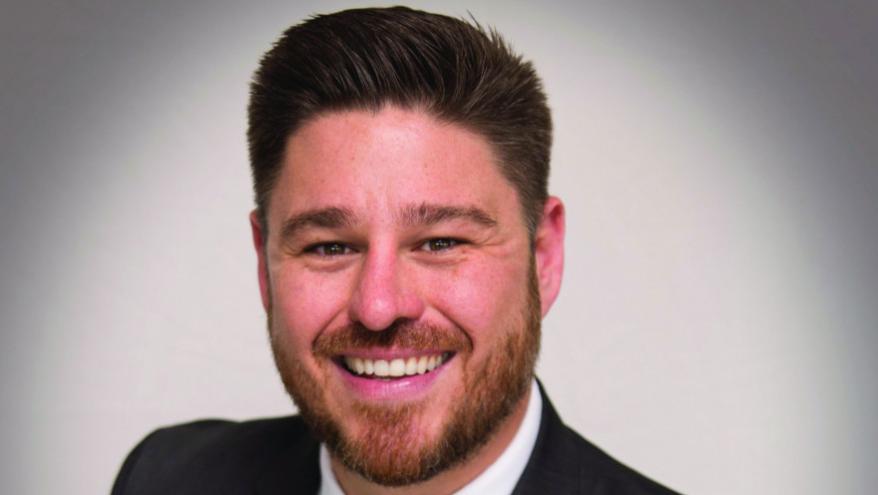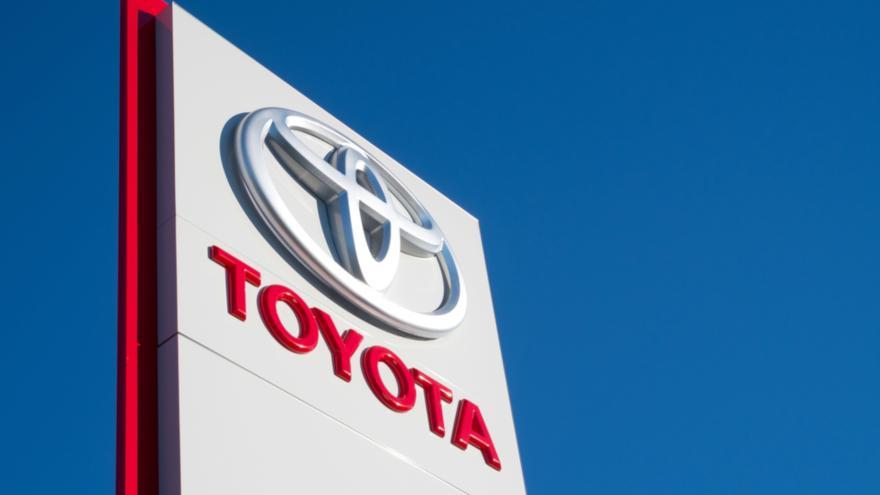Continuing to grow its presence “with a strong brand in a market we love,” Larry H. Miller Dealerships announced on Friday its acquisition of Berge Ford in Mesa, Ariz.
In other dealer news, Lithia Motors in Medford, Ore., promoted Tina Miller to chief accounting officer.
The Larry H. Miller acquisition increases number of the dealership group’s Phoenix metro area stores to nine. Larry H. Miller Dealerships opened its first Valley location in Arizona, Larry H. Miller Toyota Peoria, in 1980.
Larry H. Miller will give a new name to the store’s sales and service center: Larry H. Miller Ford Mesa. Larry H. Miller will also rename the location’s collision center, commercial vehicle center and off-site quick lane to Larry H. Miller Collision Center East Valley; Larry H. Miller Ford Mesa Commercial Vehicle Center; and Larry H. Miller Quick Lane Tire and Auto Center. The dealership also features The Pit Stop, which is a café and coffee shop.
Larry H. Miller Dealerships will retain the dealership’s existing employees. That brings the total number of Arizona-based personnel at 13 dealership locations to more than 1,500. Larry H. Miller Dealerships now operates 63 dealership locations with 20 different automotive brands. The company operates in seven western states, beginning with a single dealership in Murray, Utah, in 1979.
The Berge family has owned and operated Berge Ford for more than 75 years.
“We’re thrilled to continue to grow our presence with a strong brand in a market we love,” Larry H. Miller Dealerships president Dean Fitzpatrick said in a news release. He added that Berge Ford has been named a Ford Triple Crown winner.
Berge Ford president Nancy Berge said that when determining a buyer, her company looked for a family-owned company with values and culture to match that of her business.
“We hand-selected Larry H. Miller Dealerships for the alignment of culture, their focus on giving back in the community and the way they treat their employees,” Berge said in a news release. “We know the dealership will be in good hands.”
Larry H. Miller Dealerships senior vice president of operations in Arizona, Pat Kroneberger, agreed that Berge Ford’s culture aligned well with the Miller dealerships.
“We’re excited to welcome the employees into our organization and share with them the mission, vision and values upon which Larry and Gail built our company,” Kroneberger said in a news release.
Regarding the Lithia Motors news, Miller has served as corporate controller for the company since 2015 and served for Lithia Motors in different accounting and audit leadership roles for 14 years. Miller previously worked in the assurance area for Ernst & Young.
Miller in her new role will oversee accounting, financial reporting, tax and risk management. She will also serve as the company’s interim principal financial officer.
“We appreciate Tina’s dedication to excellence and accuracy,” Lithia president and chief executive officer Bryan DeBoer said. “We’re excited to expand her influence and we’re confident she’ll continue to build wonderful teams.”
For those who work in or follow the used-car market, you may have seen a familiar face during a late autumn airing of “Mad Money” on CNBC.
That being Jim Hallett, chief executive officer of KAR Auction Services, who was interviewed by host Jim Cramer.
During NADA Show 2019 in late January, Auto Remarketing asked Hallett what he aims to emphasize about the used-car market when he talks to audiences of such venues as “Mad Money” that cater to an investment-minded crowd.
Hallett starts with focusing on the sheer size of the used-car business.
“When you tell people there’s 290 million vehicles on the road in North America, when you tell people that the used-vehicle churn in the United States is 40 to 45 million cars a year, and when you tell them that we’re selling 5-and-a-half million cars a year and over $40 billion in proceeds, that gets somebody’s attention,” Hallett said.
“Describing how big the market is, and then, describing the opportunities in the market,” he said. “So, it’s not just about, ‘get a call, sell a car.’ It’s about the car, the transportation, the ancillary services, the online platforms, the digital platforms — all the different venues where we can actually transact.”
Asked if he has seen the investment in the used-car space increase, Hallett described it as “steady.”
“I’ve never really thought about it as ‘more’. I’ve always kind of seen it as there’s been continuous (investment), but it’s not like all of a sudden I’ve seen this big ramp-up,” Hallett said. “I think I’d say there’s been continuous investments, and as you know, (with) private equity, they get in, they get out.”
But, like Hallett described, the used-car market — wholesale and retail — is massive. Its tentacles spread into online sales, transportation, technology, ancillary services and beyond.
Several of the players who operate in those venues, either wholesale or retail, are publicly traded, just like KAR. CarMax, Carvana and Copart, for instance.
There are also used-car players like ACV Auctions that are making big inroads in the venture capital space. In December, for example, ACV announced a $93 million Series D funding round. Bain Capital Ventures and Bessemer Venture Partners led the round, which also included Future Fund, Tribeca Ventures and Armory Square Ventures.
There have also been investments from within the space.
For instance, AutoNation was the lead investor in an $146 million funding round for online car retailer Vroom, which officially announced the Series G round in December. AutoNation had announced its piece of the investment in late October, saying it obtained roughly a 7-percent ownership stake in Vroom after a $50 million strategic investment in the online car retailer.
With its $54 million investment, Lithia led the $140 million round of Series D financing in online marketplace Shift that was announced in September. Lithia and Shift also formed a strategic partnership, and Lithia president and chief executive Bryan DeBoer joined Shift’s board of directors. In October, Lithia said it had acquired more equity interest in the online marketplace.
In January 2018, Penske Automotive Group closed its purchase of U.K. used-car retailer The Car People, a deal first announced in December 2017. This followed a similar move Penske made in January 2017, when it announced an agreement to buy CarShop, a U.K. chain of five standalone used-car retail stores. That acquisition was completed in February 2017.
Stateside, Penske announced a deal in December 2016 to buy U.S.-based used-car retailer CarSense, closing that acquisition in January 2017.
Erin Kerrigan — managing director of the Kerrigan Advisors firm that specializes in buy-sell in the new-car franchised dealer space — said investors in auto retail may look beyond the traditional new-car dealer.
“I think that those that invest in our industry will not limit themselves to the box of the new-car franchise. They will continue to look at how they can vertically integrate the business model, tapping into other parts of the business such as financing, such as used-car-specialized business models and collision centers,” she said in an interview at the NADA Show for an upcoming episode of the Auto Remarketing Podcast.
“The smart money is going to continue to look at ways to really maximize their return-on-investment, which may include doubling down on the higher-profit parts of our industry, which certainly are in the other aspects (like) the F&I, the service business, the used-car business — the margins are just much more attractive than they are on the new-car side of the equation.”
In a seperate Auto Remarketing story, Kerrigan explains two factors that are driving the appeal of investment in franchised car deaershps.
The tech-driven changes in auto retail, particularly those around digital retailing, plus a generational torch-passing, are leading many family-owned auto dealerships to consider exiting the car business and selling their stores, says Erin Kerrigan, an expert in valuation, real estate and the buy-sell space of auto dealerships.
“The good news is, it’s also the same reason that the investors and buyers want to get into the game,” said Kerrigan, managing director of Kerrigan Advisors, in an interview for an upcoming episode of the Auto Remarketing Podcast at NADA Show 2019.
“It’s that adage from Warren Buffett at play here, where he says, ‘Be fearful when others are greedy and greedy when others are fearful,’” she said.
“And we’re finding that the buyer community is extremely excited about the opportunities that disruption and change are going to create in retailing. We like to say,‘Fortunes will be made in our trillion-dollar industry for those who innovate in this industry.’ So, with that, we just see a lot of capital interested in coming into auto retail and backing great operators to grow.”
Kerrigan, whose firm specializes in the buy-sell space of new-car franchised dealers, said there were more than 200 dealership transactions last year, the fifth straight time the buy-sell market has eclipsed that mark.
That sum over the last five years translates to roughly an eighth of franchised dealers changing ownership, Kerrigan said. With increases in both the number of buyers and the number of sellers, Kerrigan said this year could be even busier than 2018.
The last few years has shown the number of dealer groups with more than nine stores has increased at a 50-percent higher clip than groups with four to eight stores, she said.
Numbers for the one- to three-store groups are falling.
“So, you’re definitely seeing a shift to larger groups, and that’s quite natural, given some of the changes that we’re expecting in auto retail, specifically with digital retailing and really a changing of the way we retail,” Kerrigan said.
Many dealers might not want to shift how they’ve modeled their businesses (successfully, by the way) so selling often becomes a more attractive option, she said.
Estimates from Kerrigan Advisors indicate that about half of the franchised new-car dealer body is family-owned, many of which are second-generation or beyond.
“And there is just a natural challenge of shifting from generation to generation for every family business,” Kerrigan said. “And our industry is now bumping up against some of those challenges. Only about 30 percent of businesses make it to the second generation, about 12 to the third and about 3 percent to the fourth. Now, auto retail has defied those odds. We have actually done a much better job at that transition.
“However, now we’re finding that as these families are looking at the generational shifts — because I like to say that dealers think in generations, not decades — they’re looking at the future and saying, ‘Goodness, do I want to transition my business to my son or daughter?’ who may be in their 20s or 30s, and really those individuals would be stepping into the next 40 years of an industry that could change quite dramatically.
“I think the combination of sort of the fear factor that’s created by the discussion of disruption, combined with the generational shifts is creating an environment where more sellers are deciding the time is right to exit,” she said.
But, again, the buyer appetite is strong, too — including from those you might not expect to be investing in auto retail.
New investors come aboard
The first example that might come to mind is that of Berkshire Hathaway and its billionaire leader Warren Buffett. In 2014, Berkshire Hathaway agreed to purchase the Van Tuyl Group, the largest privately owned dealership group in the U.S. The purchase closed in 2015, with Van Tuyl becoming Berkshire Hathaway Automotive.
Asked if she was seeing more investment in auto retail from non-traditional parties, Kerrigan said: “We are — so much so that we’ve created a segment of our business at Kerrigan Advisors where we just raise capital for dealers that have a plan to grow and have the executive team to grow and consolidate the industry.”
The Blue Sky Report published by Kerrigan Advisors is distributed to 9,000 people in 35 countries, she said, and with that reach, the firm gets contacted once a week by new capital sources — including private-equity firms, family offices and billionaires — who want to move into auto retail.
“And so, we really believe that actually the capital-raising function and service that we provide to dealers could eclipse our sale side advisory business at some point, because we do think that is the future,” Kerrigan said.
“That is the way that retail is going to consolidate. It’s not probably going to be the publics, the existing publics that we know and love,” she said. “We think the driving force of consolidation is actually going to be the entrepreneurs that always made auto retail so special, and those entrepreneurs no longer limiting themselves to their own balance sheets but rather tapping into other people’s money to really ignite their growth and reach even further than they would be able to reach with the limitations of their capital.”
So, what makes auto retail so attractive to new investors? For one, the consistent return on equity, Kerrigan said.
“I can think of very few industries in the entire country that have shown the level of return on equity that our industry has shown so consistently for some many decades,” Kerrigan said. “Even at the depths of the recession, when we all felt like the world might come to an end, auto retail on average remained profitable.
“And in fact, the return on equity at again 2008-09, the worst time in the industry, was still in the teens. That’s incredible. Right now, the average dealer is looking at ROE between 25 and 30 percent,” she said. "Very high returns. And so, I think the cash-on-cash return that you can achieve in our industry is unparalleled, and that’s why so many investors, smart money; they’re trying to figure out how to get in.”
Typically, the “barrier to entry” has been the fact that franchised dealer ownership has to be approved by the automaker, Kerrigan said. This has led to a “fragmented” and a “mom-and-pop” body of dealership owners.
“However, you’re starting to see some chinks in the armor there; you are seeing structures that are getting through the OEMs for approval,” Kerrigan said.
“And I think Berkshire Hathaway’s endorsement — the smartest investor in the world buying the largest private dealership group in the U.S. — really just spoke volumes about the opportunity,” she said. “And also, the fact that they frankly were able to get the structure done open opened people’s eyes to the fact that this is an industry that we actually can figure out how to invest in.
“And I think it’s just the beginning.”
Another cluster of family owned dealerships is departing the industry and selling to a larger group.
According a to a news release distributed on Tuesday, Kerrigan Advisors represented and advised Minnesota-based Village Automotive Group in its sale of Lexus of Wayzata, Lexus of Maplewood and Village Chevrolet to Chicago-based Ed Napleton Automotive Group, which operates more than 74 franchises in seven states.
Founded by the Bloomer family in 1950, Village Automotive Group is one of the original charter dealerships for Lexus in the U.S. and has earned the Lexus Elite distinction for a combined 46 years, operating the only Lexus dealerships in Minnesota.
The company’s Village Chevrolet dealership in Wayzata has been owned and operated by the Bloomer family for nearly 70 years and is one of the oldest Chevrolet dealerships in the state.
“After 70 years in the auto dealership business, our family’s decision to sell was a difficult one. We are happy to see Village Automotive Group transition to another family-owned dealership group who will continue our customer service and employee-focused legacy,” said Steve Bloomer, president and chief executive officer of Village Automotive Group.
“We are very grateful for the guidance and support that the Kerrigan Advisors’ team provided us in the sale process. Erin Kerrigan’s expertise — from her deep understanding of the buy/sell market, transactions and dealership valuations to the OEM approval process — helped make our sale as smooth as possible,” Bloomer continued.
Kerrigan Advisors has been involved in the sale of 79 dealerships in the last five years, representing more than $1.5 billion in client proceeds. For example, Kerrigan Advisors was intimately involved with another family business when Carson Kia — which the firm said at the time was the highest volume Kia dealership in the U.S. since 2016 — was purchased by southern California-based Trophy Automotive Dealer Group (TADG) last August.
Village Automotive Group valued that experience during its journey.
“Kerrigan Advisors was invaluable to us in the sale of our dealerships,” said Steve Bennett, vice president, chief operating officer and partner of Village Automotive Group who has been active on Lexus dealer and product councils during his 38-year tenure with the company.
“Mercedes Hendricks and Marie Brashears of Kerrigan Advisors were particularly helpful in preparing us for sale and managing the buyer due diligence process. We are very grateful for all of their hard work in making this sale a success,” Bennett continued.
Erin Kerrigan, founder and managing director of Kerrigan Advisors, described the path the firm took with Village Automotive Group.
“Two things were clear when we were engaged by Steve Bloomer and Steve Bennett: the importance of selling to a buyer who would continue the Village Automotive Group’s extraordinary record of top customer service and the need for a transaction process that would do justice to the Bloomer family’s 70-year legacy in the automotive retail industry,” Kerrigan said. “We are pleased that we found a buyer with a deep family legacy in the auto dealership business.
“With the acquisition of Village Automotive Group, Napleton is adding a hugely respected group of dealerships, including some of the top Lexus franchises in the U.S., and entering the Minneapolis market for the first time,” Kerrigan added.
Bill Jonason and Mark Hamel of Dorsey & Whitney served as legal counsel to Village Automotive Group. Jama Kris of Stinson Leonard Street and Les Stracher served as legal counsel to Ed Napleton Automotive Group.
In addition to its sell-side advisory work, Kerrigan Advisors consultancy offers strategic consulting services to dealers and their families, including growth planning, capital raising and valuation analysis, creating value every step of the auto retail lifecycle.
The firm highlighted that its managing directors are fully licensed with Financial Industry Regulatory Authority (FINRA) and have particular expertise in navigating the complexities associated with selling large family enterprises with multiple owners and dealerships.
“Kerrigan Advisors’ promise to its clients is to treat each sale as if it were their own,” the firm said. “Unlike some firms that simply operate as brokers, Kerrigan Advisors does not take listings or building up an inventory of dealerships for sale, rather the firm focuses on a select number of higher value transactions, such as the sale of Village Automotive Group, and ensures that each is completed to their client’s satisfaction.”
Members of the Ricart family have been “avid Harley-Davidson riders for years.” Now, they will be able to bring that passion for motorcycles into their business.
Ricart Automotive on Tuesday announced it has acquired A.D. Farrow Co. Harley-Davidson, which it noted is America’s oldest Harley dealership.
Ricart, noting that the acquisition will bring “mobility to next generation of riders,” said in a news release that the two companies will grow their automotive services, further expanding into the lifestyle electric vehicle ownership market and the traditional Harley-Davidson products.
Harley’s plans to diversify its product line by developing more electric scooters, bikes and vehicles will meet urban customers’ new demands, Ricart added.
In announcing the acquisition, Ricart Automotive noted that it will assume majority ownership of A.D. Farrow Co.’s three Columbus franchises and added that the expansion marks Ricart’s first move away from the Ricart Automotive Mega Mall in Columbus, Ohio in 10 years.
“We’re excited to get to know the A.D. Farrow employees and their families and to take on the next chapter of this historic brand," Ricart Automotive Group president Rick Ricart said in a news release.
“I have known and admired the Ricart organization all my life,” said Bob Althoff, the previous owner of A.D. Farrow Co. Harley-Davidson. Altholff has led A.D. Farrow for the last 17 years.
"The family has been Harley riders for years, and I couldn’t imagine better stewards of this legacy business in the decades to come," Althoff said about Ricart Automotive. "Their passion for motorcycles and the people who ride them convince me that they will dominate the Harley-Davidson dealer ranks as they have the Ford ranks.”
A previous Auto Remarketing article includes more information on Ricart Automotive, and another covers Ricart's new Express Checkout service.
The Dave Cantin Group (DCG), a dealership merger and acquisition firm, expanded its management team to meet a growing demand for services in key regions of the U.S.
Firm founder and chief executive officer Dave Cantin highlighted in a news release this week that the move nearly doubles DCG’s national team of regional and district managers.
DCG’s national team of M&A professionals now work from regional offices in New York, California, Florida, Illinois and Texas.
Mark Dwyer, previously managing director of DCG’s Midwest regional office in Chicago, has moved to DCG’s Madison Avenue headquarters in New York, where he joins William “Woody” Woodward to co-manage the Northeast region in one of the firm’s busiest offices.
Scott Worthing will succeed Dwyer as managing director of the Midwest region.
In addition, Chad Goodson has been appointed a managing director for the Southeast region, where he will co-manage the regional office with Dan Simonson. Based in the Miami-Fort Lauderdale area of Florida, the Southeast is another of the firm’s fastest growing regions.
Fred Sherwood and Alex Covino also have joined the company as district managers in the firm’s West region. Based in Irvine, Calif., the region is led by managing director George Pero.
Worthing has more than 30 years of experience in dealership financing. He began his career with Mercedes-Benz Financial, where he held a number of senior management positions in dealer relationship management. He moved from captive finance to commercial banking in 2008, joining M&T Bank in Philadelphia as administrative vice president of dealer financial services. M&T Bank later appointed him to open an expansion market in Chicago through its SunTrust Bank group working closely with dealers in the Midwest.
“DCG has quickly established a solid reputation as the go-to dealership M&A firm in North America, and I’m excited to be part of the management team at such a fast-growing company,” Worthing said.
Goodson comes to DCG from Cornerstone Executive Capital, where he served as a managing director for more than 10 years. At Cornerstone he counseled dealers on organizational development, performance management, valuations, sales and service. He previously worked as a client development manager at CARFAX where he directed leadership and development activities with the company’s top dealer groups and vendor partners.
Prior to CARFAX, Goodson was in brand performance management for GP Strategies Corp., where he represented General Motors in the company’s Southeast region.
“DCG fills a much-needed service gap in a rapidly evolving market,” Goodson said. “I’m looking forward to joining this group of top-notch merger-and-acquisition specialists — unquestionably leaders in their field.”
Sherwood has worked in the automotive industry for 40 years, including significant experience with Chrysler in its dealer network office on the West Coast. He spent the last three years managing his own private consulting business and has been instrumental in consummating numerous buy/sell agreements.
Covino joins DCG with experience in both financial and real estate markets. Early in his career, he worked as an equity trader responsible for the active management of short-term-oriented portfolios under continuously changing market conditions. Covino later worked in residential and commercial real estate where he built a high-output real estate investment company that helped bridge the gap between conventional sellers and institutional investors.
“The rapid growth in demand for our services over the past year has allowed us to expand our team of M&A professionals to include a group of highly effective managing directors at five regional locations throughout the U.S.,” Dave Cantin said.
“This is the most experienced team of M&A experts in the country — a team with considerable expertise both on the retail and wholesale sides of the business," he went on to say.
“Two wheels. One planet. Zero emissions.”
That is the motto for Silicon Valley-based electric personal mobility startup GenZe. The company started out in 2012, developing IoT-connected electric scooters and bicycles in Fremont, Calif.
GenZe says that since then, it has become a key supplier within the shared mobility category, launching fleet electric bikes and scooters with public operators as well as fleets in the tourism, delivery, college and corporate sectors.
On Monday, GenZe announced it joined the North American automotive division of automotive engineering company, Mahindra Group. The companies say the acquisition reflects the personal transportation industry’s rapidly changing landscape in 2019.
That changing landscape includes bikeshare acquisitions by Uber, Lyft, and Ford Motor Co.
“Mobility is rapidly evolving and we’re adapting to these changes to stay at the forefront of personal transportation,” Rick Haas, chief executive officer of Mahindra Automotive North America, said in a news release. “Ultimately, we are a mobility business and we see GenZe as a great addition to our growing portfolio of purpose-designed transportation solutions.”
The companies note that their partnership will combine Mahindra Automotive’s design, engineering, and manufacturing resources with GenZe’s expertise in the two-wheeled electric vehicle category.
GenZe started out with an initial product offering that featured a consumer e-Bike and what it describes as “the world’s first IoT e-Scooter featuring telematics.” The brand went on to offer a smartphone-connected electric bicycle.
Mahindra Automotive North America began operations in 2017, offering the Roxor off-road vehicle, which it says is creating a new subsegment in the “side X side” industry. The company says it is a finalist for the United States Postal Service replacement vehicle program.
“Micro-mobility — in the form of electric bikes and scooters — has become one of the fastest growing segments in transportation, as we work to provide ‘last-mile’ solutions within heavily congested cities,” Tom Valasek, GenZe chief commercial officer, said in a news release. “Joining Mahindra Automotive will give GenZe access to resources and scale. We can grow our platform of products faster and continue to build our connected digital offerings.”
Haig Partners acted as the conduit for a pair of Texas Toyota stores to change ownership.
The firm represented Jerry Durant on the sale of Durant Toyota of Weatherford, Texas, and Jerry Durant Toyota of Granbury, Texas to the Shottenkirk Automotive Group.
Founded in 1964, Shottenkirk Auto Group has grown to 15 dealerships in five states.
“Our team is thrilled to join the dealer community in Texas, and we thank Jerry Durant for giving us the opportunity to buy his two Toyota stores,” Shottenkirk Auto Group chief executive officer Greg Shottenkirk said.
“Jerry has set a high bar for delivering excellent customer service and we look forward to building on that legacy,” Shottenkirk continued.
Haig mentioned that this transaction was the firm’s third closing so far in this year, while noting that Durant will not be selling any other dealerships.
Jerry Durant said, “I will miss working with the talented staff at Durant Toyota and Jerry Durant Toyota, but I am looking forward to a little less stress and a little more time at the beach.
“Greg Shottenkirk and his team turned out to be the perfect buyer for me, showing integrity and professionalism every step of the way,” Durant continued. “I welcome them to the Weatherford and Granbury communities.
“I also want to thank Alan Haig at Haig Partners. He heard what I wanted and his experience in buy-sells helped make sure the process turned out just the way I hoped,” Durant went on to say.
Haig of Haig Partners was the financial adviser to Durant. John Shackelford at Shackelford, Bowen, McKinley & Norton served as legal counsel to Durant. George Taylor III of Burr & Forman provided legal advice to Shottenkirk.
“We were honored to be able to help Jerry achieve his goals,” Haig said. “Buyers continue to be extremely interested in dealerships in the great state of Texas, and Toyota remains one of the most desirable franchises.
“The market for higher value dealerships continues to be highly active and 2019 is shaping up to be another big year for dealership sales,” Haig went on to say.
Graham Holdings Co. — an education and media company whose operations include educational services, television broadcasting, online, print and local TV news, home health and hospice care as well as manufacturing — recently decided to diversify its portfolio even more.
And in doing so, the company decided to get into the retail car business.
Graham Holdings recently announced it has acquired two dealerships from Sonic Automotive as the publicly traded dealer group decided to dispose of Lexus of Rockville and Honda of Tysons Corner. According to a news release, the purchase price was not disclosed.
And to aid its new venture into the dealership arena, Graham Holdings also announced it has entered into an agreement with Christopher Ourisman, a member of the Ourisman Automotive Group family of dealerships.
The company indicated Ourisman and his team of industry professionals will operate and manage the acquisitions. Graham Holdings holds a 90-percent stake.
“We are excited about the possibilities in the automotive industry as we diversify our portfolio of companies, Graham Holdings chief executive officer Timothy O’Shaughnessy said. “This acquisition aligns with our management approach of long-term orientation, decentralization and quality.
“We view this purchase as a unique opportunity to execute our ongoing strategy of investing in businesses that are profitable and are expected to have stable growing years ahead,” O’Shaughnessy continued.
“Chris Ourisman, a respected fourth generation operator in the automotive space, has a proven track record of operating successful dealerships and is deeply committed to the sector. Partnering with Chris positions the business for long-term value and success,” O’Shaughnessy went on to say.
Ourisman also commented on entering into a relationship with Graham Holdings.
“Graham Holdings Company is an ideal partner in that both organizations share the same culture, commitment, values and vision. The Ourisman family of dealerships have been driven by our professional sense of stewardship, passion and innovation since our founding in 1921,” Ourisman said.
“Both companies have been business leaders in the region driven by the same multigenerational philosophy,” Ourisman continued. My team and I are looking forward to working with a truly special company in Graham Holdings Company and creating the premier experience for automotive clients in the greater Washington metropolitan area.”
Digital Air Strike said Thursday it has purchased ad tech lead generation company Target Media Partners Interactive (TMPi) as well as Libra Systems.
The latter provides software designed to make leasing and financing easier for auto retailers.
Digital Air Strike said this is the most significant expansion in its history. Thursday’s move was also the third acquisition the company has made in the last 10 months.
As to how it will utilize the assets of these acquired companies, DAS said it will, “integrate TMPi’s capabilities into its lead generation platform to offer even more powerful advertising solutions, including display advertising as a Google Premier Partner, location-based geo-targeted advertising and VDP Power Listings.”
As for Libra, DAS will integrate its patent-pending “Risk-to-Roll Software” will into Digital Air Strike’s Response Path intelligent messaging platform and its Response Logix patented lead response solution.
“The addition of Libra’s software will allow consumers to calculate payments and interest online, while allowing dealers to eliminate guesswork that can often result in lost deals, funding delays and claims of discriminatory lending,” the company said.
In a news release, DAS co-founder and chief executive Alexi Venneri said: “Digital Air Strike continues to expand our best-of-breed solutions to give our dealers a strong competitive edge.
“TMPi’s targeted digital advertising technology and Libra Systems’ patent-pending deal structure software integrate seamlessly into our consumer engagement platform that now serves over 5,000 dealerships and OEM clients, including businesses in additional key verticals such as healthcare and education.”
The purchases will bring in 52 additional employees and 3,000 subscriptions, plus a Los Angeles office location and field teams throughout the U.S.
Last spring, DAS purchased Path Chat, which is the privately held AI chat tech business of Eldercare Technology.












